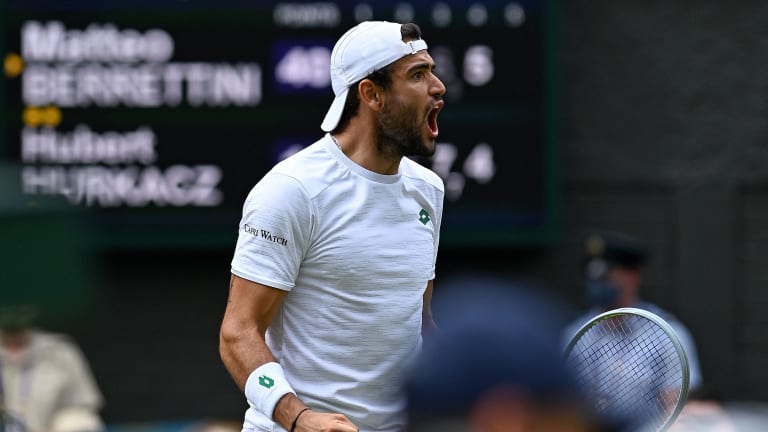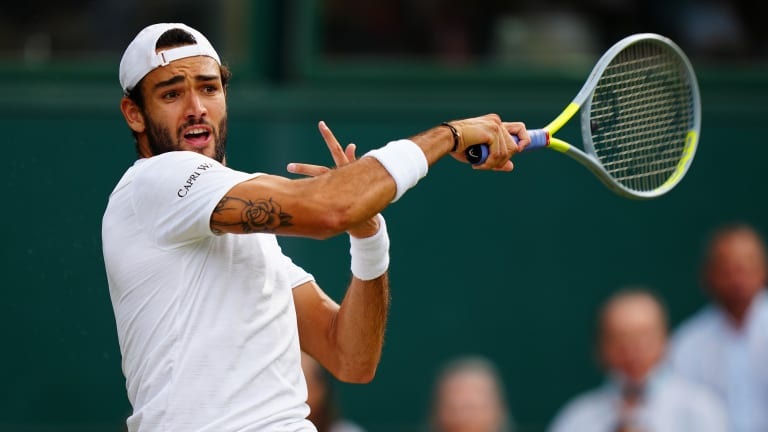Wimbledon
The Spirit of '76: At Wimbledon, Matteo Berrettini becomes first Italian men's Grand Slam finalist in 45 years
By Jul 09, 2021Wimbledon
Wimbledon to replace line judges with electronic line calling from 2025
By Oct 09, 2024Wimbledon
The amazing journey of Henry Patten from IBM data logger to Wimbledon doubles champion
By Jul 16, 2024Wimbledon
Hsieh Su-Wei, Jan Zielinski win mixed doubles title at Wimbledon
By Jul 15, 2024Wimbledon
Why Wimbledon Endures
By Jul 15, 2024Wimbledon
Novak Djokovic seeks 2024 answers for Alcaraz and Sinner after great effort: 4 ATP Wimbledon takeaways
By Jul 14, 2024Wimbledon
Carlos Alcaraz is a champion establishing how high he will climb with latest Wimbledon title
By Jul 14, 2024Wimbledon
Nicolai Budkov Kjaer makes history in winning junior boys' Wimbledon title; Renata Jamrichova wins girls' title
By Jul 14, 2024Wimbledon
Carlos Alcaraz beats Novak Djokovic again in Wimbledon final for fourth Grand Slam title
By Jul 14, 2024Wimbledon
For Jasmine Paolini, Barbora Krejcikova was one forehand and one serve too good in the Wimbledon final
By Jul 13, 2024Wimbledon
The Spirit of '76: At Wimbledon, Matteo Berrettini becomes first Italian men's Grand Slam finalist in 45 years
A 60-winner, 18-error performance was more than enough to end Hubert Hurkacz's run, and bodes well for the final match of his own.
Published Jul 09, 2021
Advertising
Advertising

Berrettini faced Novak Djokovic at the last Grand Slam tournament, in Paris. On a different surface, and with fans, they'll meet again—and this time, for a title.
© AFP via Getty Images
Advertising
Advertising

Berrettini's booming forehand is a game-breaker on grass.
© Getty Images